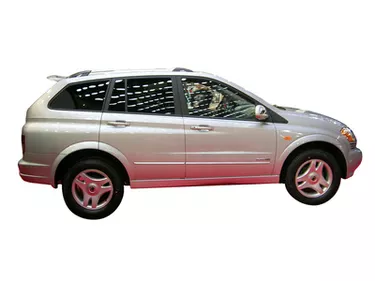
If you need to borrow someone else's car, even once, it's important to find out if the owner has insurance and in what amount. In most cases, the owner's policy will extend coverage to you, although this can vary from one insurer to another. You might need your own policy as a backup, or possibly even to provide total coverage.
Primary Coverage
Video of the Day
In most cases, the vehicle owner's insurance provides primary coverage, regardless of who is driving the vehicle. This means that if you borrow someone else's car, her policy will provide the first level of coverage if you are involved in accident. However, if you borrowed the vehicle without the owner's permission, it is possible her insurance company could deny the claim, possibly leaving you on the hook for any damages.
Video of the Day
Using Your Insurance
You could face a situation in which you borrow an uninsured vehicle or the owner carries inadequate limits to cover an accident. In this case, your own coverage would come into play to pick up where the owner's coverage leaves off. If you're at fault, your liability coverage would pay for damages and injuries suffered by third parties in the other vehicle, while your policy's medical coverage will pay for you own injuries and possibly those suffered by your passengers. Your policy generally would not pay for any repairs to the owner's vehicle.
Limitations
The vehicle owner's policy might place limitations on who can borrow the car, which could mean you might not be covered. For instance, the policy might stipulate that the borrower must be of a certain age, and you might need to seek coverage under your own insurance. If you use the vehicle for forbidden or illegal activities such as hauling passengers for a fee or transporting illegal substances, it's possible that neither the owner's policy nor your own will pay in the event of a claim.
Considerations
If you don't own a car and borrow or rent vehicles frequently, consider purchasing a nonowner policy. Nonowner policies only provide liability protection, but you'll be covered in the event the vehicle owner has little or no liability insurance. In the case of renting vehicles, a nonowner policy may ultimately be less expensive than having to purchase the rental company's coverage, although you may want to purchase the company's physical damage coverage to avoid the need to pay for repairs to the vehicle out of your own pocket.